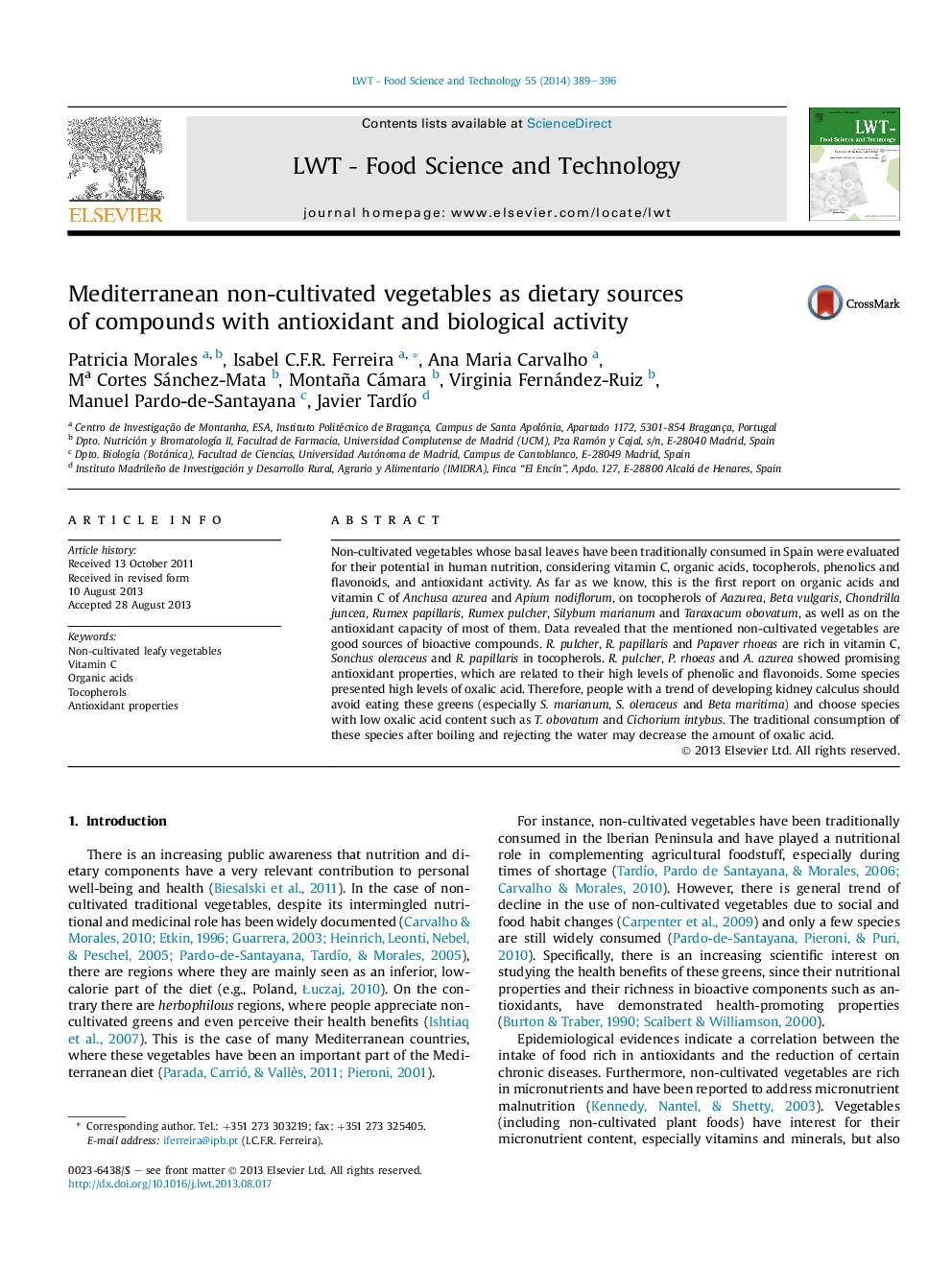| کد مقاله | کد نشریه | سال انتشار | مقاله انگلیسی | نسخه تمام متن |
|---|---|---|---|---|
| 6403997 | 1330898 | 2014 | 8 صفحه PDF | دانلود رایگان |
- Spanish non-cultivated vegetables are a good source of bioactive compounds.
- Vitamin C, organic acids, tocopherols and phenolics were determined.
- Rumex pulcher, Papaver rhoeas and Anchusa azurea showed promising antioxidant properties.
- Basal leaves of some species presented very high levels of oxalic acid.
Non-cultivated vegetables whose basal leaves have been traditionally consumed in Spain were evaluated for their potential in human nutrition, considering vitamin C, organic acids, tocopherols, phenolics and flavonoids, and antioxidant activity. As far as we know, this is the first report on organic acids and vitamin C of Anchusa azurea and Apium nodiflorum, on tocopherols of Aazurea, Beta vulgaris, Chondrilla juncea, Rumex papillaris, Rumex pulcher, Silybum marianum and Taraxacum obovatum, as well as on the antioxidant capacity of most of them. Data revealed that the mentioned non-cultivated vegetables are good sources of bioactive compounds. R. pulcher, R. papillaris and Papaver rhoeas are rich in vitamin C, Sonchus oleraceus and R. papillaris in tocopherols. R. pulcher, P. rhoeas and A. azurea showed promising antioxidant properties, which are related to their high levels of phenolic and flavonoids. Some species presented high levels of oxalic acid. Therefore, people with a trend of developing kidney calculus should avoid eating these greens (especially S. marianum, S. oleraceus and Beta maritima) and choose species with low oxalic acid content such as T. obovatum and Cichorium intybus. The traditional consumption of these species after boiling and rejecting the water may decrease the amount of oxalic acid.
Journal: LWT - Food Science and Technology - Volume 55, Issue 1, January 2014, Pages 389-396
